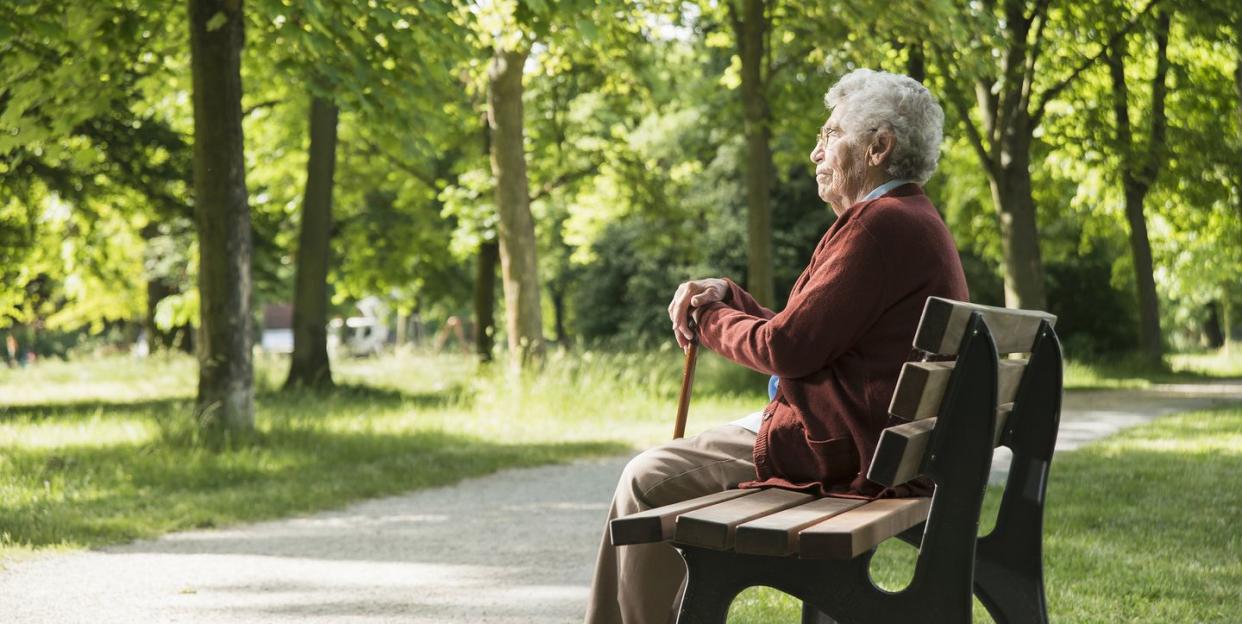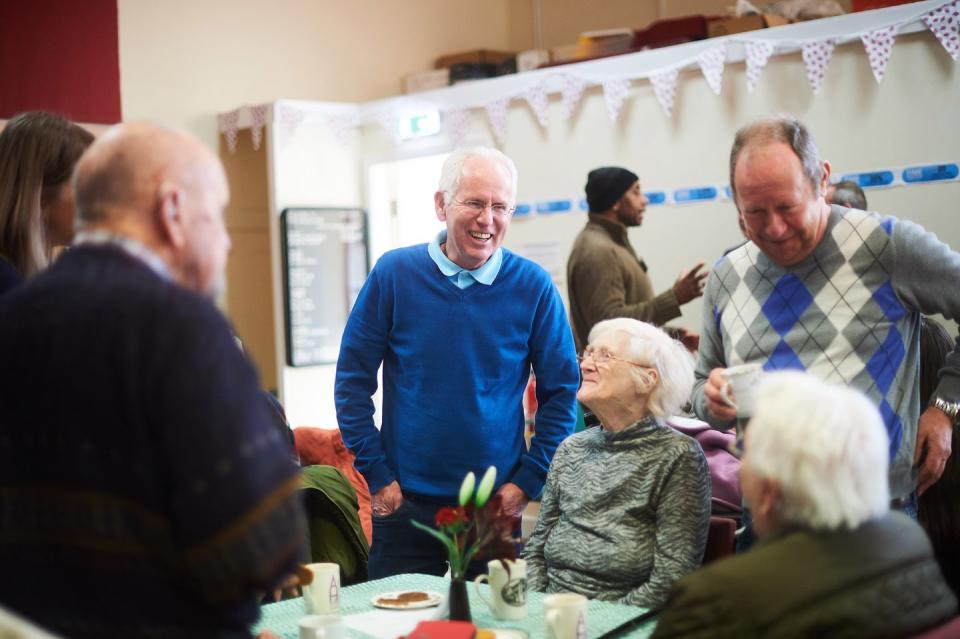What the government is doing to prevent loneliness during the coronavirus outbreak

Last July, Baroness Barran became UK Minister for Civil Society, with a mission to ease loneliness across the country. Back then, no one could have predicted the entry of the coronavirus COVID-19 pandemic into our lives and how enforced social distancing would bring isolation and loneliness to the fore.
Here, Country Living speaks to the Minister about what the government is doing to help people who are isolated because of the outbreak, and how she is coping without her own family, who are 100 miles away.
Where are you now?
"I’m working from home in London, while my family are in Bath [the Baroness has four children]. I have to stay here because I’ve been around a lot of ill people, but I’m keen to get back. We’ve been having family dinners on Skype."

It must be a busy time…
"I’m having a lot of virtual meetings – I feel like a human Google Hangout – but I’m actually grateful to be busy. For many people, their lives are on hold – whether they’re a child who can’t go back to school or an older person dependent on going to a lunch club to see people. Their routine has stopped very abruptly."
How do you think the current situation has highlighted the issue of loneliness?
"It has highlighted it very acutely. Before this, many of us will have felt lonely at some point in our lives and, happily, the majority will have worked their way through it and it won’t have had particularly damaging effects. For others, however, it will have been very serious and will have had a long-term impact on their physical and mental health.
"Now, every single one of us is faced with uncertainty, including how this will impact our sense of connection. People are beginning to realise loneliness can affect everyone.
"Perhaps, at the moment, there is a bit more focus on how people are going to get food and medicine, but I think, within days or weeks, loneliness is going to be a huge issue."

What will the government be doing to help?
"Our priority is to find ways to support people who are now particularly isolated and alone. I was amazed at the take-up to our NHS Volunteer Responder campaign – within a few days, more than half a million people had signed up. It was extraordinary and wonderful to see that. Volunteers will be delivering shopping and medicine or joining a ‘check in and chat’ service to ease loneliness."
There have been so many volunteer schemes popping up around the country. Which ones have stood out for you?
"As a government, we don’t have all the solutions, but we can shout out about everything good that’s happening. I’ve been impressed with what the BBC is doing to support children who are no longer in school [there are new shows on iPlayer and daily educational podcasts on BBC Sounds], and Sport England who are encouraging indoor exercise.
"Then there are all the local projects – the network of Covid Mutual Aid Groups [independent groups across the UK] is growing by the minute. I’ve been following lots of smaller organisations. The Rural Coffee Caravan in Suffolk might no longer a physical caravan providing social spaces, but it has quickly become a virtual one [their events calendar is now populated with online choirs and craft tutorials].

"Then there’s the Denby Dale Centre in Yorkshire. I visited them recently and, when I arrived, all I could hear in the village street was laughter pouring out of the window from their dementia lunch club. They’ve already turned this into an online community and are linking with businesses to make sure they can support everyone virtually."
How will you find people who aren’t online?
"I think younger people have a lot to offer in all of this. They will typically be much more digitally savvy. I’ve been looking at LifeLines in Brighton. They used to run a lot of face-to-face activities for older people. Now they’re holding Zoom quizzes and meet-ups. Not everyone is on autopilot to set that up, but we can help each other.
"We should be thinking: What can younger people offer older ones? What can older ones offer younger people?"
What should we do when we’ve had enough of screens?
"Being close to nature can really help our mental health; it can be very therapeutic. I think that's one of the real assets of a rural community."
Here's a few ideas to help you connect to nature this spring:
• Chris Packham launches online birdwatching community to connect those self-isolating
• National Trust launches #BlossomWatch to lift the nation's spirits
• 20 things to do in the garden during self-isolation
How do you think this will affect communities in the longer term?
"I'm a glass half full person. I think people who thought loneliness would never touch them could start to feel it, together with anxiety it often brings, and I hope they will think this is my chance to connect with others.
"As a government, we don't want to dictate what people should do, but, speaking personally, I've got family around the world. We've now set up an email group and are talking about what’s happening in our own countries.
"I hope that we will all really value connection and relationships in a way that perhaps we haven't quite as much in recent years."
The information in this story is accurate as of the publication date. While we are attempting to keep our content as up-to-date as possible, the situation surrounding the coronavirus pandemic continues to develop rapidly, so it's possible that some information and recommendations may have changed since publishing. For any concerns and latest advice, visit the World Health Organisation. If you're in the UK, the National Health Service can also provide useful information and support, while US users can contact the Center for Disease Control and Prevention.
In need of some positivity, heartwarming countryside news and spring gardening advice? Sign up to our free Country Living newsletter for your weekly dose of escapism.
You Might Also Like

 Yahoo News
Yahoo News 
